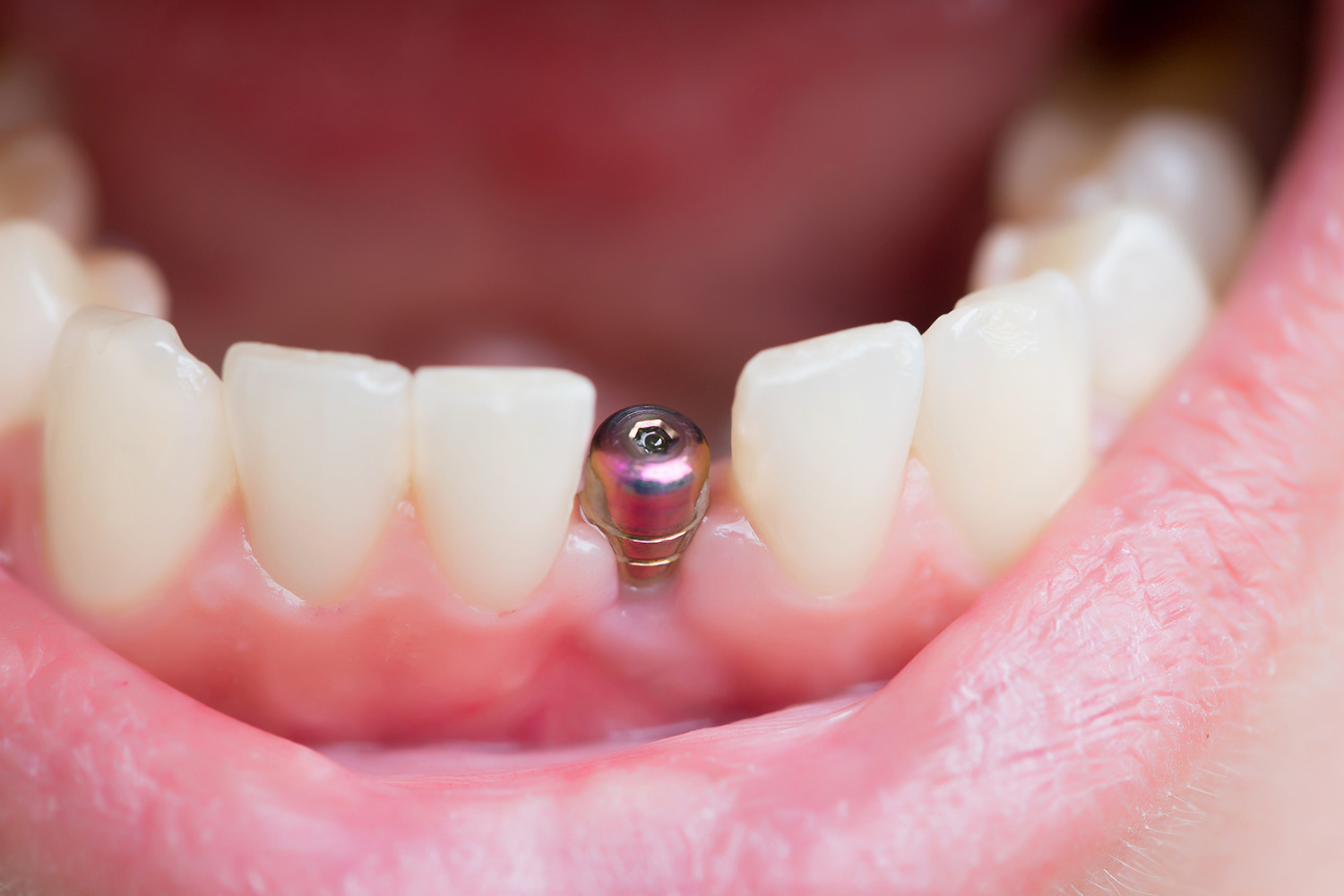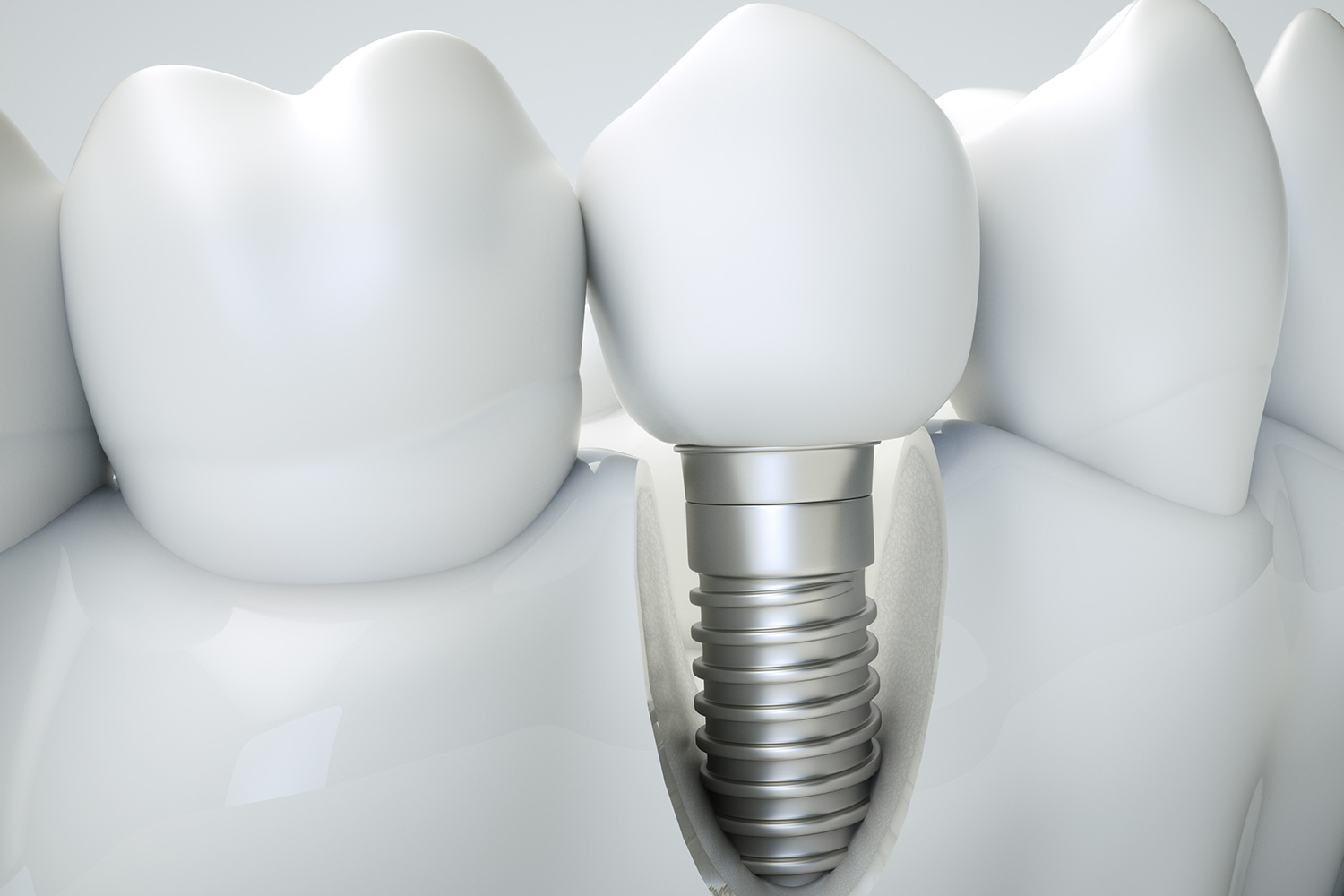DENTAL IMPLANTS
A dental implant is a small titanium screw that serves as the replacement for the root portion of a missing natural tooth. Dental implants can be placed in either the upper or lower jaws. Due to the biocompatible properties of titanium, it also becomes a good anchor replacement, the most common being:
- Single Implant – The replacement of root and crown for a missing or rotted tooth. This procedure is quick and stable for long-term natural tooth use.
- Multiple Implants – This procedure is exactly the same as a single implant, but involving multiple teeth. This may take longer, as there is more than one surgery involved in the process.
- Full Arch Replacement – When all teeth are missing or in such condition that they need to be replaced, a fixed bridge anchored to dental implants proves a solution. This could take 8-10 visits or more to complete.



HOW MUCH DO DENTAL IMPLANTS COST?
The fee for tooth replacement with dental implants depends on several factors, including the number of teeth being replaced and the number of dental implants required to support your replacement teeth. Some additional procedures may be required prior to the placement of your dental implants to ensure their long-term health.
WHO IS A CANDIDATE?
Anyone who is missing one or more teeth due to injury, disease or tooth decay may be a candidate for dental implants. The determining factor is the amount of available bone. Your dentist is the best person to evaluate whether dental implants are a viable solution for you.
Occasionally, older patients express concern that their age may prevent them from enjoying the benefits of dental implants. Health is more of a determining factor than age, as well as certain illnesses; if you’re healthy enough to have a tooth extracted, you’re probably healthy enough to receive dental implants.
HOW WILL DENTAL IMPLANTS AFFECT MY LIFE?
Dental implant-supported replacement teeth look, feel and function like natural teeth. This means that you can eat and drink whatever you choose; but most importantly, dental implants often improve quality of life. People who have felt embarrassed and worried because of their tooth problems are often overwhelmed by what new permanent teeth can do for their self-esteem.
And of course it will be as identical as possible. When dental implants are used in combination with modern restorative dentistry, their appearance, comfort and function are very likely to exceed your expectations.
HOW MUCH TIME IS REQUIRED FOR DENTAL IMPLANT REPLACEMENT?
Today, state-of-the-art guided surgical techniques are convenient alternatives to place dental implants and allow you to have the dental implant placed in a single session using keyhole surgery. This new method has significantly simplified the procedure, for both patients and dentists. The major advantage of the guided surgical technique is the minimal amount of manipulation of the soft tissue due to keyhole surgery. This significantly reduces the healing time and the discomfort normally associated with traditional dental implant surgical techniques, which is normally manageable with medication prescribed by the dentist.
The entire conventional process can take from three to six months. First, the dentist places the dental implant, which is left for three to six months to heal and integrate with the jawbone. During the healing period you are given a temporary prosthesis until the permanent crown is put in place. The procedure chosen depends on several factors, such as your dental health, the number of teeth involved and which teeth are replaced. These factors will also determine the total number of visits to the dentist throughout the treatment period.
WHAT ABOUT AFTER TREATMENT?
It is normal to have some bruising and swelling in the gum and soft tissues, but usually the discomfort, if any, is treated with an ordinary painkiller. You should expect to be able to work the next day. Your new teeth must be cared for and checked regularly like natural teeth; brush and floss as recommended by your dentist or dental hygienist.
